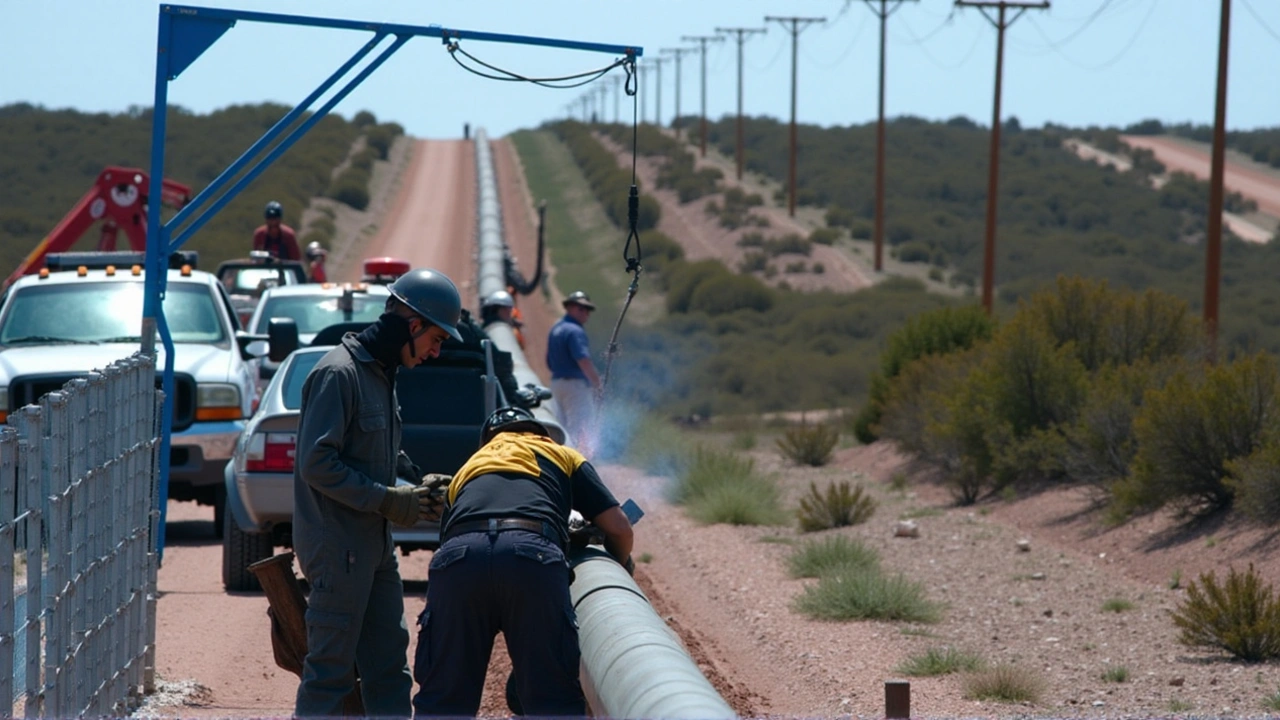
Brazil and Argentina's Strategic Shale Gas Agreement
In the ever-evolving landscape of global energy markets, South America has emerged as a key player, highlighting an ambitious endeavor between Brazil and Argentina. These two nations are reportedly nearing the completion of a historic shale gas deal, poised to reshape the region's energy matrix. This agreement is being meticulously crafted with the aim to bolster Argentina's gas exports while ensuring Brazil gains access to a more affordable energy supply. The culmination of these negotiations is anticipated to occur in the wake of the G20 Summit set to convene in Rio de Janeiro, marking a significant milestone in the bilateral relations of these neighboring countries.
The Detailed Structure of the Energy Pact
The centerpiece of this energy pact revolves around Brazil's plan to purchase shale gas sourced from the Vaca Muerta fields in Patagonia. Initially, the agreement outlines Brazil's procurement of two million cubic meters of gas per day. This figure is slated to experience a steep upward trajectory, increasing fivefold over the next few years, ultimately reaching a staggering thirty million cubic meters daily by the year 2030. This strategic scaling up is designed to address Brazil's growing energy demands, providing a steady supply route and reinforcing energy security within the country.
The Vaca Muerta fields represent one of the world’s largest shale gas reservoirs, and their exploitation is pivotal for Argentina. Historically, Argentina's energy sector has been underutilized, but the commercial viability of these shale reserves could significantly alter the nation's economic landscape. The infusion of Brazilian capital through these purchases holds the potential to invigorate Argentina's economy, providing a much-needed injection of foreign revenue.
Geopolitics and Pipeline Dynamics
The deal, while appearing straightforward in its ambition, is not without its complexities, largely influenced by geopolitical dynamics. The election of Argentina's far-right President Javier Milei has introduced a layer of political intrigue to the negotiations, given his less-than-cordial relations with Brazil's President Luiz Inácio Lula da Silva. Although initial plans involved Brazil's National Development Bank (BNDES) funding the extension of a critical gas pipeline from Vaca Muerta towards Buenos Aires and eventually stretching into Brazil, this element has been temporarily shelved. However, there remains a contingent chance that these plans could be resurrected under more favorable diplomatic conditions.
With the original pipeline strategy on pause, the focus has shifted towards an existing conduit in the form of the Gasbol pipeline, which currently links Bolivia to Brazil. Recognizing a unique opportunity amidst dwindling gas supplies from Bolivia, Argentina emerges as a vital player to fill this impending void. Incorporating Bolivia into these trilateral discussions provides a fresh direction for an underutilized asset, leveraging existing infrastructure to accommodate the transference of Argentine gas via Bolivia to Brazil.
Environmental Considerations and Concerns
While economic and strategic benefits underscore the deal's rationale, environmental implications cannot be overlooked. Argentina's extraction process at Vaca Muerta relies heavily on fracking, a method that elicits global environmental concerns due to its pollution potential. In a twist of irony, as Brazil recently articulated its climate commitments through its new Nationally Determined Contribution (NDC) at the United Nations Climate Conference (COP29), emphasizing a reduction in fossil fuel use, it finds itself in this gas deal.
This juxtaposition underscores the delicate balance Brazil seeks to maintain between its energy necessities and environmental stewardship. Critics of the agreement are quick to highlight this apparent dissonance, pointing out that Brazil's internal energy policy strides could be undermined by engaging in gas imports extracted through controversial methods.
Strategic and Economic Impacts
Despite the outlined challenges, this proposed agreement heralds significant economic implications for both nations. For Argentina, a successful deal could catalyze the country's energy sector, reinvigorating an economy impaired by fiscal instability. By unlocking the potential of Vaca Muerta, Argentina may well transition from a domestic gas reliance to an energy exporter, reasserting itself within the global energy discourse.
For Brazil, securing a stable and cheaper gas supply is essential to propelling industrial growth and sustaining economic development. Diversifying energy imports is not merely strategic but a necessity driven by fluctuating global energy prices and uncertainties. In a broader geopolitical context, this deal reflects a burgeoning regional interdependence in Latin America, where collaborative energy policies may emerge as pillars of continental solidarity.
Conclusion
As both Brazil and Argentina inch toward finalizing this strategic gas pact, the ramifications extend far beyond bilateral commerce. It ushers in a blueprint for future cooperative frameworks amidst environmental, economic, and geopolitical complexities. How these nations navigate these intricacies will determine not just the success of the agreement but potentially dictate the broader trajectory of energy alliances in South America. As the global energy landscape continues to advance, pragmatic strategies like this stand as a testament to the intricate and multifaceted nature of contemporary energy diplomacy.